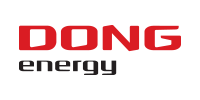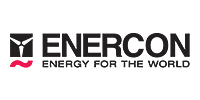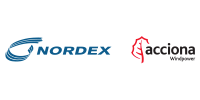The session focuses on conversion systems for wind turbines based on power electronics, mainly for off-shore applications. The trend of higher power brings several challenges related to compliance with grid requirements. Harmonics and resonances become crucial issues that require proper analysis and innovative yet practical solutions. This session covers aspects related to power converter architectures and the modulation and control of the converter. We will look at the interaction with the electrical grid as well as practical aspects about how to optimise the primary control in different wind conditions and how to effectively test the control of large-scale wind systems in emulated conditions.
You attended this session?
Learning objectives
- To explain a number of ways that the different power converter systems (including their filter) impact the real operation of an offshore wind park;
- To identify the value of grid emulator test benches;
- To list possible advantages of frequency converters in wind energy;
- To explore methods that lead to reducing the cost reductions of integrating offshore wind energy.


Presenter

Co-authors:
PAWEL PRYLINSKI (1) F
(1) ABB Sp. z o.o., Lodz, Poland
Presenter's biography
Biographies are supplied directly by presenters at WindEurope Summit 2016 and are published here uneditedPawel Prylinski is a Polish citizen based at ABB’s Transformer Campus in Lodz, where he is global Account Manager for Wind Power Generation within ABB’s Transformers Business Unit and a member of the ABB Wind Power Segment.
He studied Mechanical Engineering at the Technical University of Lodz and received the M.Sc, Eng. degree in 1989.
Abstract
Optimization of offshore platform transformers – how can they support LCOE targets
Introduction
Transformers are key electrical components to collect wind power, connect to the grid and transmit it through the electricity network. The quality of transformers has a major impact on the availability of wind power generation as well as on reliability of the whole network.
So what are the challenges today in deploying the optimal transformer solutions to ensure the highest quality and stability of electricity supply and at the same time to support the initiatives to reduce the levelized cost of offshore wind energy ?
Approach
The total cost of ownership (TCO) of transformers incorporates the various costs over the lifetime of the transformer such as the initial product cost, cost of delivery and assembly and installation, cost of operation (losses) and costs of maintenance. And specifically for offshore applications - the size and the weight of the transformers have a huge impact on the size, weight and the costs of the offshore platform steel structure and its foundations.
ABB has developed a technical and economic optimization process to minimize the transformer TCO and in cooperation with systems integrators and platform builders is supporting optimization of offshore substations and consequently helping the optimization of platforms and foundations.
Main body of abstract
This paper (presentation) lists various transformer design factors, key size, weight and costs drivers and highlights possible solutions to optimize transformers in order to ensure energy-efficient and reliable transformation of wind power and also to support systems integrators and platform builders to optimize the offshore substation as a whole.
It reviews problems, challenges and possible solutions to reduce the LCOE through using the most appropriate transformer technologies combined with using advanced transformer design and optimization tools.
Conclusion
Optimization of transformers can play a key role in reaching the ambitious LCOE targets.
ABB has developed an optimization process to support all offshore wind power stakeholders in reaching their common LCOE goal.
This offering is the result of our own research, development, design and manufacturing.
Learning objectives
There are various transformer design drivers which have huge impact on performance, weight and size and costs.
The offshore transformer optimization process is available to achieve energy-efficiency, availability and reliability of wind power in the most cost-effective way.







Follow EWEA on: